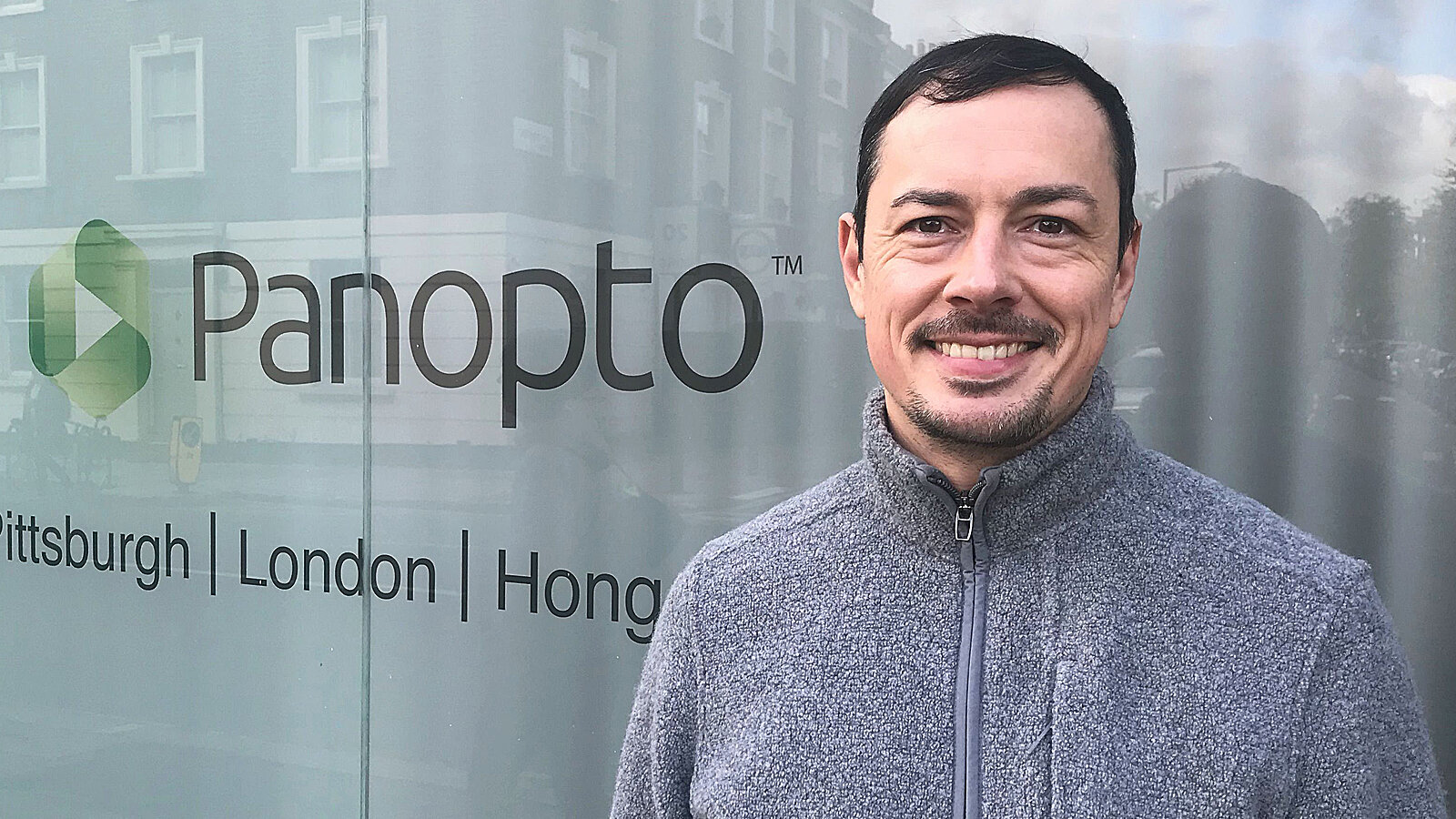“There were plenty of areas of relevance in my studies that strongly benefit me today”
Our alumnus Christian Nedjalkow is currently based in London and works for a company which offers a video solution for internal Learning and Development as well as for meeting capture.
Our alumnus Christian Nedjalkow is currently based in London and works for a company which offers a video solution for internal Learning and Development as well as for meeting capture.
Christian, your current job title is Enterprise Account Executive. What exactly does an Enterprise Account Executive do?
The role of an Account Executive is simply to conduct business between different companies or “Accounts” and the term Enterprise refers to all kinds of large and global organisations. Selling services from one business to another business can be a complex transaction, and the outcome is often of a strategic nature to the overall success of the client. So, as an Account Executive, it is not enough to understand the products and services being sold, but also the technology ecosystems a client is already using, the business goals and values of companies, as well as general business trends impacting the economy.
You work in an industry that provides businesses and universities with, amongst other things, a video content management system. Is it fair to assume that your services were in high demand over the last couple of months?
The Covid-19 crisis had a huge impact on all our lives, with wide ranging consequences for the business world and the educational sector alike. However, themes like New Work, Agile and Remote Work have massively gained in popularity in recent years, and so have tools and services that enable organisations to implement these trends in the workplace. Panopto, my current employer, provides a video content management system that fits the challenges of our times. The company has grown continuously ever since its founding at Carnegie Mellon University in 2007.
How has your average workday been impacted by Covid-19?
Working and learning from home has become the norm for many people, and with that sudden development new ways of communicating and collaborating have thrived. Instead of writing an e-mail or a message, I find myself more often spontaneously scheduling an online meeting or watching a pre-recorded video. The social interactions happening in any office are not just about work, but also about participation. Text based communication is lacking the performative quality of face-to-face interactions. For example, pre-Covid-19 the way you dressed and moved around in the office revealed a lot about your personality. Today, to a degree the background in a video has more importance than the outfit and look of the speaker.
You graduated from Chemnitz University of Technology in 2008. How or is your degree related to your current position?
While there is no direct relation, there are plenty of areas of relevance in my studies that benefit me today. My major subject was Sport Science, which despite common belief has a huge topical scope, as it ranges from Scientific Theory, Sociology, and Psychology to Neurology, Biomechanics, and Anatomy. My job requires me to speak with and understand all kinds of highly specialised professionals in their fields, be it IT, HR, Communications, Health, Engineering, or Scientific Research. My broad educational background helps me to better understand their struggles and effectively communicate back to them how the services we provide can help to overcome these challenges.
You took up your studies in 2001. Do you remember what it was like, starting out in university?
It was an exciting time, full of novelty and naturally insecurities. The teaching staff was very friendly and helpful, and some of the advanced students served as mentors. One advice from one senior student that stuck with me was to think outside the box and not just follow the Curriculum. While it is a great achievement to finish university in the shortest time possible, what really matters is how the time has been spent. I believe time is well spent with reading books that aren’t on the list for the exam, engaging in political activities and for social courses, and starting to build a company or creating community events with fellow students.
What was your Erasmus experience like? Have your studies at university prepared you for the job market?
I probably wouldn’t be living in London today if I hadn't studied Intercultural Communication as a minor subject and spent an Erasmus term in Denmark. Teaching and Learning in itself have always been of interest to me, and my second minor subject Educational Science gave me a solid foundation. In my job, concepts like blended learning or the “flipped classroom” are more important than ever before in my career. In addition to my subjects of choice, I was lucky enough to be accepted as a scientific interviewer at PAIRFAM, the Panel Analysis of Intimate Relationships and Family Dynamics at the faculty of Sociology. Understanding the importance of asking specific questions in order to achieve scientific exact results is a very important aspect in my profession too.
You only started your new job in August. How would you describe this experience? Are there any challenges when starting a new position in the midst of a pandemic?
I would say there are many upsides, and a few downsides. Working in a company that offers a video solution for internal Learning and Development, as well as for meeting capture, surely made things a lot easier for me. The physical office has been replaced by conferencing systems for virtual meetings, collaboration tools and an onboarding video library to draw from. In many ways, this is actually a more efficient way of starting into a new role. The thing that is hard to replace though is socialising with colleagues over a game of table tennis at the office or at the pub after work.
Matthias Fejes
20.10.2020





